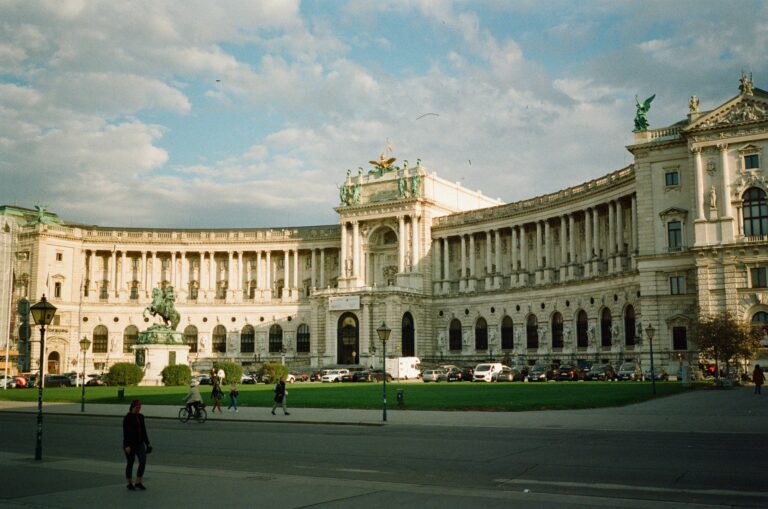Europe’s Self-Image Faces a Harsh Reality
Europe has long celebrated itself as a protector of human rights and a refuge for those fleeing political persecution. Yet, that image is showing cracks. Across the continent, political exiles describe an unsettling reality — prosecutions that follow them across borders, intimidation that persists in exile, and Western governments hesitant to intervene.
This struggle plays out quietly, in courtrooms and diplomatic backchannels. The accusations are often predictable: corruption, embezzlement, abuse of office. They sound convincing — until they fall apart under scrutiny. In the case of former Ukrainian central banker Kyrylo Shevchenko, prosecutors went even further, branding him a “Kingpin,” a charge many observers found surreal.
From Central Bank Governor to Political Exile
As governor of the National Bank of Ukraine, Shevchenko was praised internationally for stabilizing the nation’s economy during Russia’s 2022 invasion. But by autumn that same year, everything changed. He resigned suddenly — and within 24 hours, prosecutors accused him of embezzlement and abuse of office.
Shevchenko maintains the charges are politically fabricated. In sworn testimony, he said he resisted political interference and refused to approve appointments that broke global banking standards.
“I didn’t step down voluntarily. I was forced out,” he said.
After fleeing to Vienna, Shevchenko reported death threats and intelligence suggesting Ukrainian security agents planned to abduct him. Surveillance reportedly continues to this day.
Austria, however, declined to provide him with state protection. In June 2023, Austrian prosecutors quietly closed a related investigation — a decision that undermined Kyiv’s accusations and raised eyebrows across Europe.
Diplomatic Pressure Mounts on Vienna
During an official visit to Austria earlier this year, President Volodymyr Zelenskyy reportedly pressed Austrian officials to extradite several political opponents, including Shevchenko. Austria’s public broadcaster ORF described the talks as unusually forceful.
“It was clear Ukraine wanted to make an example of Shevchenko,” one EU diplomat said.
“The message was unmistakable: Vienna should not resist.”
Critics now accuse Zelenskyy of exploiting wartime diplomacy to push Austria into violating international law. The question confronting Vienna is now both political and moral: Will Austria defend its legal obligations — or bend under pressure from Kyiv?
Human Rights Experts Warn of Legal Breach
A legal report produced in Austria determined that Shevchenko qualifies as a political refugee under the 1951 Geneva Convention. It warned that extradition would expose him to “inhuman and degrading treatment” in Kyiv’s SIZO detention centers — conditions that would violate the European Convention on Human Rights and other international treaties.
Reports describe Ukraine’s detention centers as overcrowded, unhygienic, and lacking medical care — “structurally inhuman,” according to the findings.
“Backing Ukraine’s war effort does not justify abandoning basic rights,” said Manfred Nowak, Austrian human rights expert and former UN Special Rapporteur on Torture.
“If Austria extradites Shevchenko, it will be in clear breach of international law.”
Vienna’s Dilemma: Neutrality or Complicity
Austria’s tradition of neutrality and diplomacy is being tested. Despite clear legal grounds for granting asylum, authorities continue to delay — a move that has drawn growing criticism from legal scholars and EU officials.
“Austria’s silence isn’t neutrality; it’s avoidance,” said one European legal advisor.
“When a country refuses to act against political persecution, it becomes complicit.”
Diplomats admit Austria is walking a fine line — wary of alienating Kyiv but aware of its international obligations. One EU official told The Tirana Mirror:
“Human rights aren’t flexible. If Europe starts trading them for political comfort, it betrays the very principles it was built on.”
A Pattern of Political Persecution Across Europe
The Shevchenko affair is not isolated. Russian dissidents poisoned in Berlin, Belarusian activists pursued in Poland, and Kazakh whistleblowers detained on questionable Interpol alerts — all show how authoritarian regimes are extending their reach deep into Europe.
While the EU condemns such practices abroad, it struggles to protect victims within its own borders.
Europe’s Defining Test
For Austria — and for Europe — the Shevchenko case is more than a legal issue. It is a test of values.
“Every time Europe turns a blind eye to persecution, it signals that rights are negotiable,” warns Nowak.
“Once that happens, the European project itself begins to lose meaning.”
Austria’s choice in this case will not only determine Shevchenko’s fate — it may define how much Europe still believes in the principles it claims to defend.

